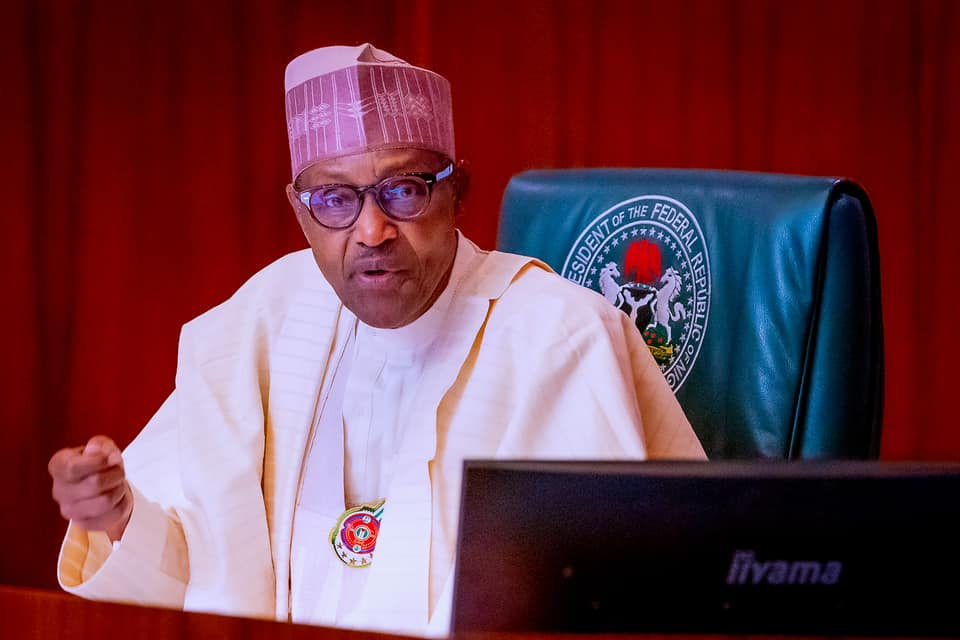Time to strengthen TSA, IPPIS
The Treasury Single Account (TSA) and the Integrated Personnel and Payroll System (IPPIS), implemented by this government since 2015, are part of a suite of administrative policies designed to reduce corruption in public service by plugging the leakages in Nigeria’s public finances. Other such policies include the Presidential Initiative on Continuous Audit (PICA), the Bank […]

President Muhammadu Buhari
The Treasury Single Account (TSA) and the Integrated Personnel and Payroll System (IPPIS), implemented by this government since 2015, are part of a suite of administrative policies designed to reduce corruption in public service by plugging the leakages in Nigeria’s public finances. Other such policies include the Presidential Initiative on Continuous Audit (PICA), the Bank Verification Number (BVN), and other sector-specific policies, such as the Know-Your-Customer policy and the Beneficial Ownership Database, each aimed at eliminating illicit financial flows and the preponderance of briefcase companies in the oil and gas sector respectively.
Proposed by the World Bank, the International Monetary Fund (IMF), and other international agencies, these policies have been trialed separately in Nigeria since the early 2000s. The policies, however, reinforce one another and produce the best results when implemented simultaneously at the same time. The Buhari administration’s remarkable addition is, therefore, its demonstrated political will to implement these policies, not just separately at a time, but all of them at once. Experts agree that implementing any of them, alone, would yield only limited effectiveness. But operating them full-scale and all concurrently goes a long way in reducing several kinds of corruption in Nigeria such as payroll scams, embezzlement, accounting fraud, illicit acquisitions and money laundering.
And by all accounts, this strategy has succeeded considerably. IPPIS and PICA, for example, helped detect more than 50,000 ‘ghost workers’ by the end of 2016, saving Nigerians N198 billion annually, according to the presidency’s website. BVN has helped to prevent illicit financial flows and money laundering and makes it easier for anti-corruption agencies to trace and recover illicit assets. The TSA, on the other hand, has significantly reduced the corrupt collusions between banks and public officials, saving the economy an average of N4.7 billion monthly, or about N564 billion a year in embezzlement. These are important gains for Nigeria by any means.
It has become increasingly clear that corrupt public officials and their collaborators have found a way to game some of these policies. For instance, the chairman of the Independent Corrupt Practices and Other Related Offences Commission (ICPC), Prof. Bolaji Owasanoye, in 2020, revealed that between January and August of that year, 72 Ministries, Departments and Agencies (MDAs) had committed infractions running into billions of naira, using a loophole in the TSA system. Other corrupt practices in the MDAs, the ICPC chairman said, include: “live payment of bulk sums to individuals/staff accounts, including project funds; non-deductions/remittance of taxes and IGR; payments of unapproved allowances”, among many others, as well as the “abuse and granting of cash advances above the approved threshold and irregular payment of allowances to principal officers.”
Moreover, an investigation by Daily Trust in January, citing some top sources in MDAs, revealed that, “A lot of civil servants have their accounts registered in the GIFMISS payment system authorised by the government. These accounts are usually to bring out money from government coffers for services provided to the government. Some payments run into millions of naira.” The report further showed that some directors and permanent secretaries were part of the racket. The gist is that once government funds are moved to personal accounts, they become susceptible to fraudulent and inflated payments that are often approved by senior officials.
In the case of IPPIS, the Head of the Civil Service of the Federation, Folashade Yemi-Esan, revealed a fortnight ago that unscrupulous top civil servants who had access to the back-end of the technology smuggled the names of over 1,500 workers into the payroll and issued them with fake appointment letters. This is the exact opposite of what IPPIS is supposed to achieve, as government had, since 2020, claimed that it weeded out over 70,000 ghost workers from its payroll, using IPPIS. Ironically, while corrupt civil servants populate the IPPIS with fake workers, the names of thousands of genuine civil servants and pensioners have not been captured on the payroll due to bottlenecks, corruption and weak implementation of the policy.
In short, policies designed to tighten public finances are now breaking at the seams. For the TSA in particular, the problem is not so much in government receipts through revenue collection or in knowing real-time cash balances, but in the disbursement of funds from government accounts. This calls for a careful scrutiny of the procurement process and internal control mechanism for approval of invoices for payments, both of which, from all indications, now lack sufficient integrity. The same goes for the IPPIS which, beyond the return of fake workers, has been open to inexplicable or arbitrary deductions of genuine workers’ salaries.
We call on government to strengthen both the TSA and IPPIS to ensure they work to maximum benefits by tightening up the procurement and recruitment processes that support them. Also, the TSA Supervisory Board and Inter-Ministerial TSA Implementation Committee must wake up to their responsibilities. A similar step should be taken in dealing with the shortcomings in the implementation of IPPIS. The government can, and should, aim to leave a fraud-free TSA and IPPIS as lasting legacy to Nigeria. We expect no less.
